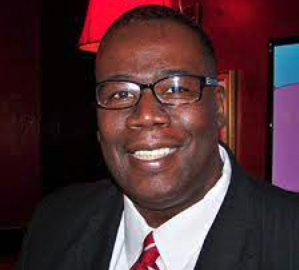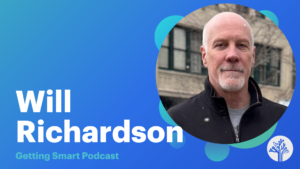Young Men United: Opportunity Awaits
Key Points
-
Young Men United (YMU) is an evidence-based initiative that provides wrap-around services to college-ready high school students.
-
The program begins in the 10th or 11th grade and aims to develop barrier-free pathways for young Black men to achieve their academic and career goals.

Young Men United is an opportunity to keep more of our young Black men on track by providing them with the crucial support they need to develop bright futures. This initiative was launched to ensure that 25,000 young Black men successfully complete college and are career-ready, ready to fuel the pipeline for jobs that corporations are looking to fill, and ready to take their place as business leaders and entrepreneurs in the 21st-century economy. It is data-driven, informed by what works, and executed locally with a comprehensive approach.
Young Men United (YMU) is an evidence-based initiative that provides wrap-around services to college-ready high school students beginning in the tenth or eleventh year to develop barrier-free pathways for young Black men to achieve their academic and career goals.
YMU supports individuals as they complete high school, enter and progress through their chosen post-secondary track, and transition from their post-secondary pathway to the workforce.
Young Men United was founded in 2020 as an extension of the revitalized Milwaukee Fellows program, in collaboration with United Way Worldwide. The project boasts an 85% college graduation rate for Black males, compared to the national average of 40%. The program is presently in thirty-one pilot cities, with an emphasis on the five Core Pillars that comprise a YMU Fellow. These five fundamental pillars are as follows:
- Mentorship
- Career and Professional Development
- Scholarship Opportunities
- Internships and Job Experiences
- Civic Engagement
Whether it is technology, coaching, or a financial donation, YMU is committed to assisting our young Black men in thriving, from internships and college readiness to career certainty.
In my community, the United Way of the Midlands runs the program, which will scale up to 200 total students by the conclusion of its fifth year. The current goal is to be at 75 total students by December 2023. The effort will establish new collaborations with four local Historically Black Colleges and Universities, as well as other institutions of higher learning in the Midlands. The program’s purpose is to boost postsecondary education attainment while also improving retention and workforce development.
Dr. Jabari Bodrick, Director of Education and Resiliency at my local United Way, spoke with me about the YMU program and his hopes for its influence on young black men in my community. “Young Men United gives us another avenue to create generational change throughout the Midlands,” he said. We are excited to collaborate with school systems across the Midlands to offer young Black men with the vital support they require to create bright futures.”
Jabari received his Ph.D. in College Student Counseling and Personnel Services from the University of Georgia. He wishes for other young men to have the same opportunity he did to attend college. Jabari worked in higher education before being asked to run YMU. Jabari said, “I witnessed firsthand how difficult it is for young Black men to navigate the educational system.” He worked at the University of South Carolina, the University of Maryland, and Elon University with the athletic program. Most PWIs have less than 5% African American male students, and Jabari stated that “these young men are looking for help and support that is not readily available.” “Neither do these young men find many faculty members who look like them.” YMU will offer campus and workplace tours to provide these young men with early exposure and information. “Young men who are prepared for college and careers feel ownership and feel comfortable networking to support them in life in general,” according to Jabari. “We will provide comprehensive services, free computer software, and even family support services.”
Why should young Black males be mentored?

Why should you support programs like Young Men United?
Black mentors serve as constructive influences that may confront any negative internalized attitudes about their own race that underprivileged youngsters may have. Black male mentors give Black adolescents a revitalized sense of worth, which influences their attitude and conduct.
The Top Reasons Why Black Male Mentors Are Important:
#1: They are culturally aware.
It is well recognized that black boys face many challenges growing up, including the failure of critical structures that are designed to aid in their development. Given that Black males have a particular set of experiences growing up that frequently effects their development, it is critical that their mentors have had those experiences as well. To fully address those difficulties, they must first be recognized. Relationships between a mentor and a mentee might be prone to cultural misunderstandings and mistrust if the mentor has not dealt with these problems as a Black man. Like any other connection, a good mentorship is built on empathy and trust.
#2: They help to strengthen healthy racial identification.
While discussing race is not always easy, it eventually leads to a stronger racial identity and emotions of connectedness within the community. Underserved adolescents who once felt isolated and misunderstood can now use the common ground they share with their mentor to increase their own self-esteem. Black mentors serve as constructive influences that may confront any negative internalized attitudes about their own race that underprivileged youngsters may have.
Black male mentors provide Black adolescents a revitalized sense of worth, which influences their attitude and conduct. Furthermore, research indicates that positive racial identification is substantially connected with higher levels of academic motivation in African American middle and high school students. When youth can define themselves in terms of their race, they feel more group pride and perform better academically.
#3: They are critical thinkers.
Black male mentors and young Black men can have genuine interactions because they share a common understanding. By discussing the effects of race and socioeconomic class, the mentee will see how they affect their daily lives and develop a critical mind. The ability to notice and comprehend social, political, and economic oppressions is referred to as critical consciousness. With critical consciousness, we can address these challenges and take corrective action that will result in visible change for our underserved youth.
If under-served youth have the tools to discuss and understand racial and socioeconomic issues, they can position themselves to not be conquered by it. This empowerment gives young Black men the capacity to understand their strengths and have a respect for the perseverance and resilience of their community, which will then help them persevere through the challenges they may face growing up.
#4: They help in closing opportunity gaps.
Because of the special problems that young Black men may endure, they may face disproportionate economic and social disadvantages. Over-referral for school disciplinary action and special education, as well as impediments to college enrollment and completion, can all have significant and long-term ramifications for their future earning potential. Mentoring, on the other hand, can serve as both an intervention and a networking connection to help turn those obstacles into possibilities. Black male mentors offer Black youth proactive supports to help them succeed as well as a second chance to reconnect with the critical structures that will help them realize their full potential.
The constantly supportive character of mentorship provides a secure space for young Black males to work through their issues and problems in completing crucial milestones in academic and interpersonal relationships. Mentoring lets the mentor share their personal and professional knowledge and experience, which can help young Black men get through these milestones and think about their futures more broadly. For example, to do well in the job market today, Black professionals have had to develop skills that make them independent and stand out. They can share these methods and provide crucial advice to their mentees as a Black mentor.
As a mentor, I am enthused about the potential of Young Men United. The capacity to expose these young men to job and college opportunities, as well as to empower them to make informed decisions with the help of a caring adult, has been demonstrated to be critical to their success.







0 Comments
Leave a Comment
Your email address will not be published. All fields are required.